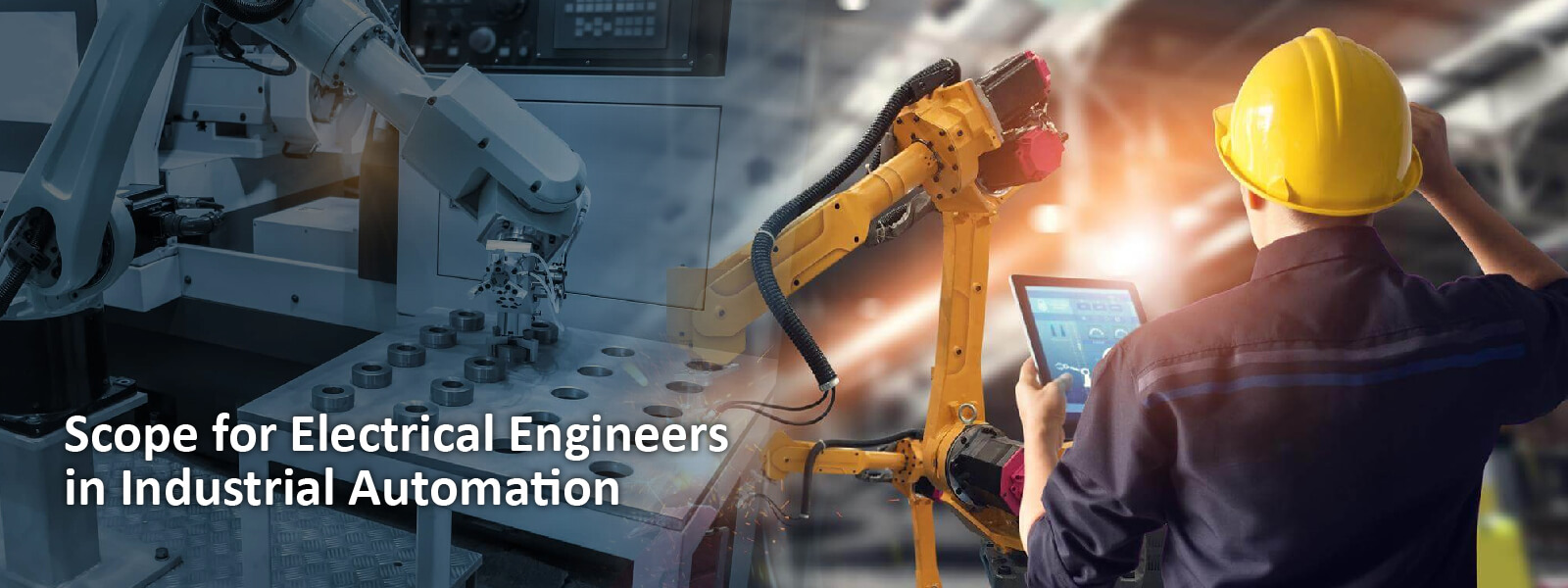
Scope for Electrical Engineers in Industrial Automation
Automation is a field that is relevant to all streams of Engineering. It is however closely related to the discipline of Electrical Engineering because the logic that is achieved by theProgrammable Logic Controller(PLC) programming today, was first done using Electrical Wiring. If one knows how to get a particular result by wiring the inputs/outputs, then he can easily pick up automation and make a rewarding career in it.
Automation is to control the industrial machinery and process with PLCand SCADA (Supervisory Control and Data Acquisition). It helps reduce the need for human intervention. It plays an increasingly vital role in the global economy and in daily experiences. Automation and control systems enable safe and efficient operation of Industrial plants by minimising risks.
Required Skill/Knowledge to fit right in with the requirements of this field
- Good understanding of control systems and the working of a control panel.
- Building sequence of a machine through electrical wiring.
- Practical knowledge of PLC.
- Practical knowledge of SCADA and Human Machine Interface (HMI).
- Ability to troubleshoot equipment problems and perform complex system tests.
- Team spirit.
Training offered under Industrial Automation Courses
If you want to work in the industrial/production industry, as an automation engineer, then learning programming language for industrial controllers is the first step. There are many institutes which offer special courses for automation engineers. The following are the training students are imparted under such courses:
- PLC Basics & SCADA Basics
- Instructions in PLC & SCADA
- Measurement products
- Distribution Control & Monitoring System
- Review & Interpretation
- Process Technologies
- Plant Automation
- Instrumentation & Safety Engineering
How These Training are Useful?
After PLC and SCADA training, students are eligible to maintain PLCs in water treatment plants, substations, switch yards etc. In different plants, all the processes of every equipment whether it is a generator, boiler, turbine or valve or motor are controlled and monitored by PLC, SCADA and DCS. After getting hands-on experience in these fields,automation engineers are fit to serve the following industries:
- Coal-fired Power plants
- Oil and Gas production factories
- Petrochemical Refineries
- Cement Plants
- Steel plants
- Food processing plants
- Manufacturing Units
Machines and robots are extensively used in these industries to perform specific functions. The role of automation engineers is to design, program, simulate and test automated machinery and processes in order to complete the tasks.
Conclusion: Today, electrical devices have become more sophisticated and can be programmed like drives and switch gears also. Automation is covering not only instrumentation but also electrical instruments like a servo, stepper motor, VMC, CNC, AC DC drives control with PLC and SCADA. Therefore, engineers have the best career opportunities in the sphere of industrial automation as every technologies and process are adopting automation.
